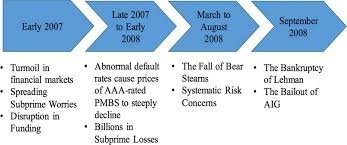Introduction
The housing market Crash has always been a subject of speculation, with investors, homeowners, and policymakers keen to understand its fluctuations. With advancements in artificial intelligence (AI) and machine learning (ML), many wonder: Can AI accurately predict a housing market crash? In this article, we will explore AI’s role in forecasting real estate downturns, supported by real-life examples and case studies.
Understanding AI in Real Estate Predictions
AI leverages vast amounts of data, including historical housing prices, mortgage rates, employment statistics, and economic indicators, to identify patterns. Machine learning models analyze these variables to detect early warning signs of market downturns.
How AI Predicts Housing Market Crashes
- Analyzing Historical Data: AI studies past housing booms and busts to detect recurring patterns.
- Economic Indicators: Factors like interest rates, inflation, and GDP growth are analyzed.
- Consumer Behavior: AI examines buyer sentiment, mortgage applications, and home affordability.
- Supply and Demand Trends: AI evaluates construction rates and inventory levels.
- Financial Market Trends: Stock market volatility, credit availability, and banking trends also influence predictions.

Case Studies of AI in Housing Market Predictions
1. The 2008 Financial Crisis: Could AI Have Predicted It?
The 2008 housing market crash, driven by subprime mortgage lending and financial mismanagement, led to a global recession. AI was not widely used in real estate predictions at the time. However, modern AI models have retrospectively analyzed pre-crash data and found red flags, such as increasing mortgage defaults and risky lending practices, which could have signaled an impending crisis.

2. Zillow’s AI Model and the 2021 Housing Boom
Zillow, a leading real estate tech company, leveraged AI to forecast housing prices. However, in 2021, Zillow’s AI overestimated market demand, leading the company to purchase thousands of homes at inflated prices, resulting in financial losses. This incident highlighted both the potential and limitations of AI in real estate forecasting.
3. AI Predictions in 2023: Did It Warn of a Slowdown?
In early 2023, AI models indicated a cooling real estate market, predicting a decline in home sales due to rising interest rates and inflation. While AI did not predict a full-blown crash, it accurately signaled a slowdown, helping investors make informed decisions.
4. Black Knight’s AI Model and Foreclosure Predictions
Black Knight, a real estate analytics firm, developed AI models to predict mortgage defaults and foreclosure rates. Before the 2020 COVID-19 pandemic, their AI systems flagged an increase in mortgage delinquencies, especially in high-debt regions. Although the pandemic disrupted traditional models, Black Knight’s AI successfully predicted foreclosure risks in areas hit hardest by unemployment spikes.
5. Redfin’s AI-Powered Market Predictions (2022-2023)
Redfin, a tech-driven real estate brokerage, used AI to forecast market cooling trends in mid-2022. Their AI system correctly identified early signs of buyer demand dropping due to high mortgage rates and inflation concerns. This allowed Redfin to adjust its business strategy by scaling back operations in certain high-risk markets, avoiding heavy financial losses.
Limitations of AI in Predicting Housing Market Crashes
While AI offers valuable insights, it is not foolproof. Some challenges include:
- Unpredictable External Factors: Events like pandemics, wars, and natural disasters can impact markets unexpectedly.
- Data Quality Issues: AI models rely on accurate and up-to-date data, which may not always be available.
- Human Behavior Complexity: Market sentiment and irrational decision-making are difficult to quantify.
The Future of AI in Real Estate Market Predictions
Despite limitations, AI continues to improve with more data and advanced algorithms. As machine learning models become more sophisticated, AI could play a crucial role in mitigating financial risks by providing early warnings and actionable insights for investors and policymakers.
Conclusion
While AI has made significant strides in predicting housing market trends, it is not a crystal ball. It can provide valuable insights but should be used alongside traditional economic analysis and expert opinions. Investors and homeowners should remain informed and leverage AI as a tool rather than a definitive answer.
What do you think? Can AI truly predict a housing market crash? Share your thoughts in the comments!

